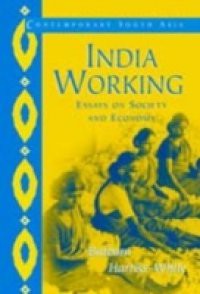By drawing on her extensive fieldwork in India and on the adjacent theoretical literature, Barbara Harriss-White describes the working of the Indian economy through its most important social structures of accumulation. Successive chapters explore a range of topics including labour, capital, the state, gender, religious plurality, caste and space. Despite the complexity of the subject, the book is vivid and compelling. The author's intimate knowledge of the country enables the reader to experience the Indian local scene and to engage with the precariousness of daily life. Her conclusion challenges the prevailing notion that liberalisation releases the economy from political interference and leads to a postscript on the economic base for fascism in India. This is an intelligent book, first published in 2002, by a distinguished scholar, for students of economics, as well as for those studying the region.

